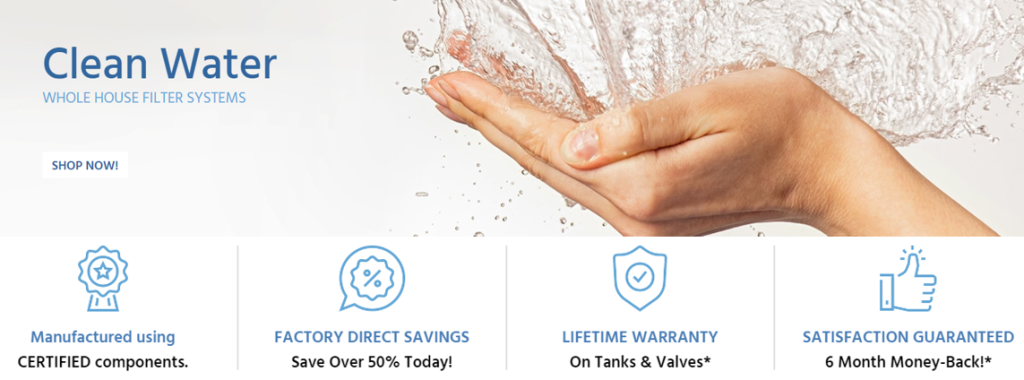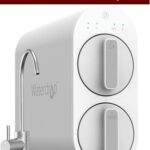The hardness of water varies by location, but a water softener should generally be set between 3 and 5.
Water hardness is determined by the amount of calcium and magnesium in the water. The hardness of water is measured in grains per gallon (gpg) or milligrams per liter (mg/L).
The recommended hardness for water softeners is 1-3 gpg (7-10 mg/L). Water hardness above 3 gpg (10 mg/L) is considered hard water.
Water hardness can be a problem because it can cause scale buildup in pipes and on water heaters. Hard water can also make it difficult to get clothes clean when washing.
Water softeners work by removing the calcium and magnesium from the water. The water is then replaced with sodium.
Install a Home Water Filter & Get "Unlimited Safe Drinking Water" For Decades
Get Upto 55% Discount With a Lifetime Warranty & 6-Months Money Back Guarantee Free Shipping
SpringWell Water Filtration Systems: 100% American-Made & NSF Certified Water Filters and Water Softeners
The hardness of water can be a problem but water softeners can help to solve the problem.
What Is The Ideal Hardness Level For A Water Softener?
The ideal hardness level for a water softener is 1 ppm.

The ideal hardness level for a water softener is between 4 and 6 grains per gallon. This level of hardness is perfect for most households, as it will prevent the build-up of soap scum and mineral deposits without making the water too soft.
For example, if your water hardness is at the high end of this range (6 grains per gallon), you may find that your skin feels a bit dry after showering. This is because the hard water is striping away your natural oils. However, this is easily remedied by using a moisturizing body lotion or cream.
If your water hardness is on the lower end of the spectrum (4 grains per gallon), you may find that your hair is not as shiny and manageable as you would like. This is because the hard water is not providing enough minerals to coat and protect your hair shafts. However, this problem can be remedied by using a clarifying shampoo or apple cider vinegar rinse.
How Can You Test The Hardness Of Your Water?
A water hardness test kit can be used to test the hardness of your water.
If you’re wondering how hard your water is, there are a few simple ways to test it. Hard water is water that contains high levels of minerals, like calcium and magnesium. While hard water isn’t necessarily harmful to your health, it can cause problems with your plumbing and appliances. Here are a few ways to test the hardness of your water:
1. Check your water bill. If your water bill includes a charge for water hardness, that’s a good indication that your water is on the harder side.
2. Look for mineral deposits. If you see white deposits on your faucets or water heater, that’s a sign of hard water.
3. Use a home water test kit. You can find these kits at most hardware stores. They’ll give you a more accurate reading of your water hardness.
4. Have your water professionally tested. A water treatment company can test your water and give you an accurate reading of its hardness.
If you find that your water is hard, there are a few ways to soften it. You can install a water softener, which will remove the minerals from your water. You can also use less water when you’re doing laundry or washing dishes, and use soap that’s designed for hard water.
Hard water isn’t necessarily a bad thing, but it can be a nuisance. By testing your water hardness, you can find out if it’s a problem in your home and take steps to fix it.
FAQ
Why Is It Important To Have A Water Softener?
How Often Should You Change The Hardness Setting On Your Water Softener?
Conclusion
Based on the information gathered, it is recommended that water softener be set at a hardness of 7.
If you have any questions about setting your water softener, please leave a comment below.


